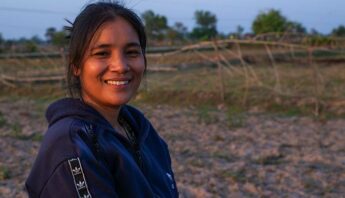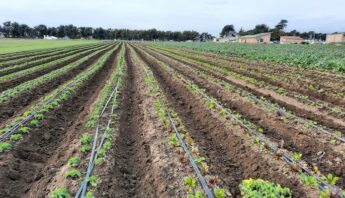Cherry blossoms are in full bloom here in Washington D.C. where I’ve spent the last few days participating in the Ecumenical Advocacy Days’ national conference for Global Peace with Justice. Along with some 700 participants, I heard inspiring stories of social justice work being carried out by communities of faith in the U.S. and around the world. Also on display were two under-appreciated facts that the U.S. food movement is slowly coming to appreciate: 1) the deep ties of communities of faith are critical to social change-making; and 2) women farmers are and will remain the real roots of global agriculture.
Women solving climate & hunger crises
The theme of this year’s gathering was gender, economic and ecological justice. I had the privilege of speaking on a panel addressing "Climate, Agriculture, Gender and Food Sovereignty" — organized by our friends Andrew Kang Bartlett of the Presbyterian Hunger Program and Kathy McNeely of the Maryknoll Office of Global Concerns. Our room was filled to capacity with over 100 participants joining.
We highlighted the critical role of women farmers in solving today’s global climate and food crises. Quick and telling fact: small-scale farmers—mostly women—are responsible for 70% of food production in developing countries. In Sub-Saharan Africa, that proportion is 80-90%. Such figures quickly dispel the myth that large-scale commercial industrial agriculture feeds the world.
Small-scale farmers—most of them women—are responsible for 70% of food production in developing countries.We discussed how women farmers’ ability to organize and assume leadership positions — on their farms, in their communities, in local government and in global social movements such as La Via Campesina — is critical to the development of effective and lasting grassroots, research and policy responses to our global food and climate challenges.
Women's organizations that have embraced agroecological farming (such as the Tamil Nadu Women's Collective) are finding that the approach helps secure a sustainable food future by providing an abundance of food, livelihood and economic benefits, while also conserving water, energy, biodiversity, pollinators and other essential ecosystem functions. Equally important, the place-based participatory methods of agroecological farming — which integrate formal science with local/Indigenous knowledge — have supported women in gaining ecological literacy, social standing and greater control over resources.
Agroecology also has enormous potential to reduce global agriculture's climate changing greenhouse gas emissions by sequestering carbon in soil and supporting more efficient nitrogen cycling — all while increasing farms’ resilience and adaptiveness in the face of extreme and changing weather patterns associated with climate change.
Gender equity & ecological justice
In a brilliant and moving keynote address, Rev. Daisy Machado spoke of the urgent need for humanity to become ecologically literate and embrace the connections between gender and ecology. Drawing on the work of eco-feminist theologians, Rev. Machado invoked a vision of deliberate ecological interdependence, which she called “embodied justice.”
On Monday after the conference, participants converted inspiration into action as they headed to Capitol Hill to urge lawmakers to reauthorize and fully fund the Violence Against Women Act and co-sponsor the new International Violence Against Women Act.
I left Washington heartened by the deep commitment of these communities of faith to embrace gender equity as both a moral and spiritual imperative and a precondition for attaining global social, economic and ecological justice. Deep and wise.








